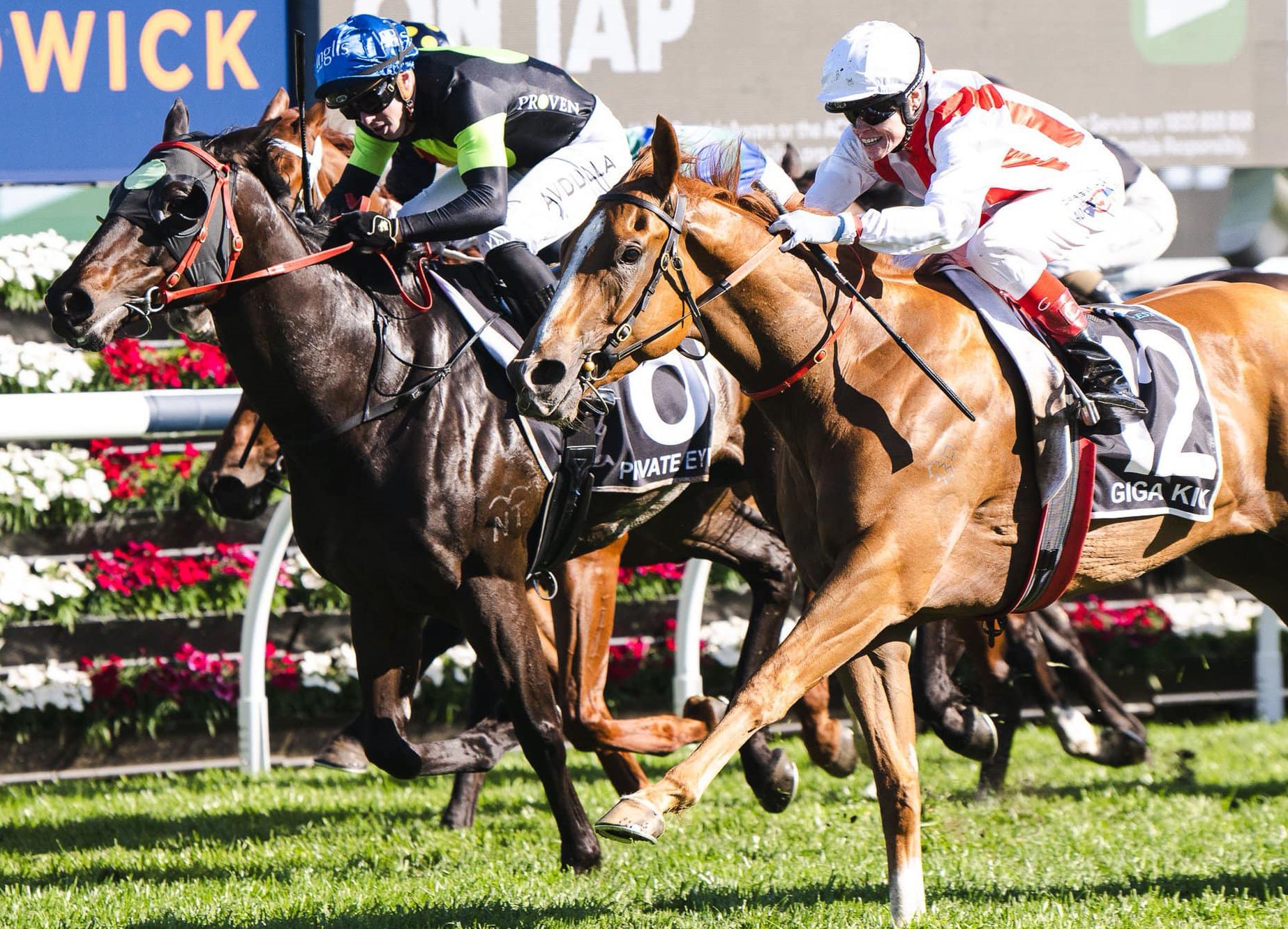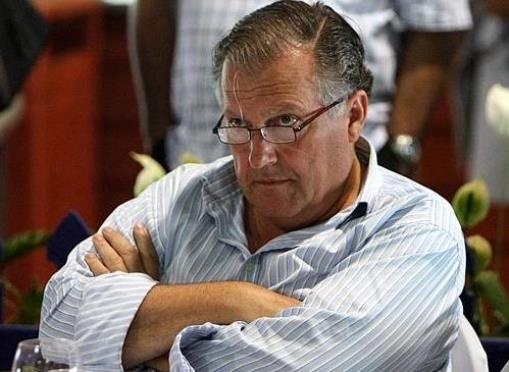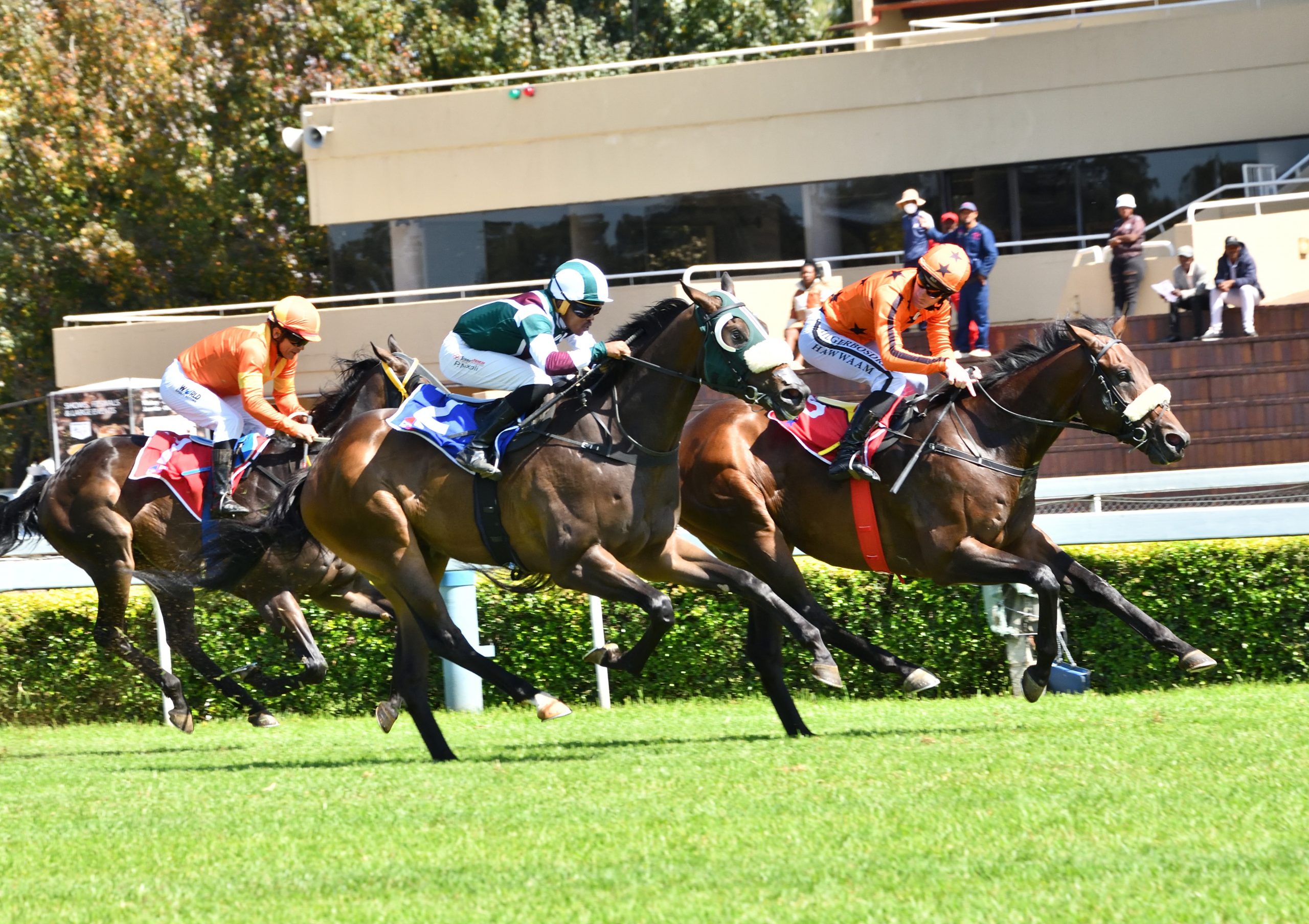Australia and New Zealand’s leading thoroughbred pedigree provider Arion Pedigrees announced today that it will not be recognising the recent upgrades to Group 1 status of The Everest and The All-Star Mile.
Kristen Manning writes in the Thoroughbred Report on www.ttrausnz.com.au on Monday that she chatted to Arion Pedigrees Managing Director Kyla Johnston as to the reasons behind this decision.
In a decisive move that underscores its commitment to global standards, Arion Pedigrees has taken a firm stance against Racing Australia’s decision to upgrade The Everest and The All-Star Mile to Group 1 status.

While Racing Australia hailed the upgrades as a landmark moment for Australian racing, Arion Pedigrees has opted not to recognise the new classifications until formal ratification is received from international authorities.
The pedigree database, respected for maintaining the highest standards in thoroughbred bloodstock cataloguing, has made it clear that it won’t be rushed into recognising races that, in its view, have not yet gone through the appropriate global processes.
This move comes in response to what many in the industry see as Racing Australia “jumping the gun.” The announcement that The Everest and The All-Star Mile had been upgraded to Group 1 status was met with enthusiasm locally but concerns quickly surfaced about the lack of formal ratification from key international bodies, including the International Grading and Race Planning Advisory Committee (IRPAC) and the Society of International Thoroughbred Auctioneers (SITA). These approvals, Arion argues, are essential to maintaining the credibility of Australia’s race classifications on the world stage.
Kyla Johnston, Managing Director of Arion Pedigrees, expressed the company’s steadfast commitment to integrity in an interview with The Thoroughbred Report. “We prefer to wait for formal international confirmation rather than rushing to upgrade races prematurely. For us, it’s about ensuring the trustworthiness and uniformity of our pedigrees in line with global standards,” she said.
Arion Pedigrees’ refusal to prematurely adopt the Group 1 classifications for The Everest and The All-Star Mile reflects a broader ethos at the heart of its operations.
Founded in 1996, Arion has built its reputation on producing pedigree pages that not only meet but exceed global standards.
By maintaining strict adherence to the International Cataloguing Standards, Arion ensures that its clients—whether breeders, buyers, or sellers—can rely on the accuracy and credibility of the pedigrees it produces.
Johnston emphasised the importance of this approach, noting that international buyers, particularly those from markets with more rigid black-type systems such as Europe and Japan, depend on the integrity of Australian pedigrees when investing. “It’s not just about putting a Group 1 label on a race; it’s about ensuring that label holds the same weight here as it does in any other leading racing jurisdiction,” she said.
“Our clients deserve to know that when they see a Group 1 race in an Arion pedigree, it’s been recognised by the highest international authorities.”
The decision by Racing Australia to push through the Group 1 upgrades without full international ratification has raised significant concerns within the industry. While The Everest and The All-Star Mile have undoubtedly attracted world-class fields, many are wary of how such unilateral upgrades might affect Australia’s standing within the global thoroughbred community.
Johnston pointed to the potential long-term damage of rushing such decisions. “It’s not just about these two races,” she explained.
“There’s a much larger issue at play here. Racing Australia has indicated that up to 50 races across the country are under review for possible upgrades, many of which are based solely on local race ratings. Without international validation, we run the risk of inflating the black-type system and losing credibility on the global stage.”
Indeed, the influx of proposed upgrades has sparked fears that Australia could face pushback from the international racing community.
The Asian Pattern Committee has approved the Group 1 status for The Everest and The All-Star Mile, but none of the other proposed upgrades have yet received international approval.
This could lead to Australia being relegated to part two of the International Cataloguing Standards, which would severely limit the international appeal of its black-type races.
Johnston expressed concern that these premature upgrades could undermine the hard-fought reputation Australia has built in recent years. “Australia has become a major player in the international bloodstock market, with significant investment from overseas buyers. If those buyers begin to feel that Australia’s black-type system is bloated or lacks credibility, it could have a serious impact on sales and investment,” she warned.
At the heart of Arion’s decision is a commitment to maintaining alignment with international standards.
Johnston made it clear that Arion’s position was not an indictment of Racing Australia’s desire to innovate or promote its most prestigious races. Rather, it is a call for patience and transparency in the process of upgrading races to black-type status.
“We fully understand the importance of races like The Everest and The All-Star Mile,” Johnston said. “These are races that have brought excitement and global attention to Australian racing. But to ensure that their new Group 1 status is respected internationally, we need to go through the proper channels. That means waiting for formal ratification from bodies like IRPAC and SITA.”
This alignment with international bodies is more than just a formality for Arion—it’s a core principle that protects the integrity of the global bloodstock market. Johnston pointed out that other racing jurisdictions, such as the UK and France, have strict protocols for upgrading and downgrading races, and it is this consistency that ensures their black-type systems are trusted worldwide.
“The last thing we want is for Australia to be seen as lowering the bar when it comes to Group 1 races,” she said.
Arion’s stance has resonated with others in the Australian racing and breeding community, many of whom have voiced concerns about the potential consequences of Racing Australia’s upgrades. Industry stalwarts like John Messara and Vin Cox have been vocal in their opposition, with both warning that the rapid expansion of black-type races could devalue Australia’s racing program.

Arrowfield’s John Messara (Pic – Supplied)
Messara, a breeding giant and owner of Arrowfield Stud, expressed fears that the Pattern system had been “hijacked” by state Principal Racing Authorities (PRAs), who are now making decisions without sufficient international oversight.
Similarly, Vin Cox, a former member of the now-disbanded Australian Pattern Committee, criticised the lack of consultation with breeders and sales companies, arguing that the PRAs had effectively taken control of the black-type system and ignored the required due process.
Johnston echoed these concerns, noting that while innovation is important, it must be balanced with the long-term interests of the industry. “We all want to see Australian racing grow and thrive,” she said. “But we have to be careful not to sacrifice credibility for short-term gains. The integrity of our black-type system is what attracts international investment, and that’s something we can’t afford to lose.”
“The integrity of our black-type system is what attracts international investment, and that’s something we can’t afford to lose.” – Kyla Johnston
For now, Arion Pedigrees will continue to operate under the existing guidelines set by the 2024 International Cataloguing Standards Book. While the local racing community may celebrate Racing Australia’s decision to elevate The Everest and The All-Star Mile, Arion’s decision to withhold recognition until formal international ratification is received serves as a reminder that credibility on the global stage is paramount.
“We remain hopeful that these issues will be resolved quickly and transparently,” Johnston said. “It’s in everyone’s best interest that we work together to ensure that Australia’s black-type system remains strong, respected, and in line with international standards.”
“It’s in everyone’s best interest that we work together to ensure that Australia’s black-type system remains strong, respected, and in line with international standards.” – Kyla Johnston
In an industry where prestige and trust are vital to maintaining international investment, Arion Pedigrees stance is focused on ensuring that every upgrade is thoroughly vetted and aligned with the highest standards. The company’s cautious approach may well be the safeguard the Australian industry needs to maintain its reputation in the international bloodstock market.
The Thoroughbred Report reached out to Racing Australia for comment but didn’t receive a response before publication deadline. We will include the response when and if we receive one.
Find more news on www.ttrausnz.com.au







